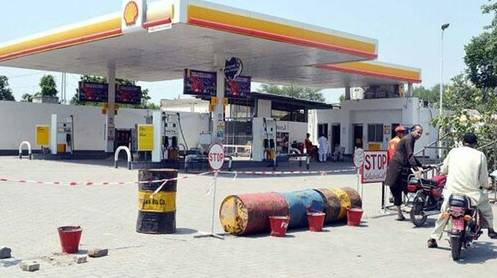Monitoring Cell Established to Manage Fuel Supply During Strike
ISLAMABAD: The Pakistan Petroleum Dealers Association (PPDA) announced on Wednesday that negotiations with provincial and federal governments and other stakeholders had reached an impasse, prompting a nationwide shutdown of petrol stations starting July 5.
PPDA Chairman Abdul Sami Khan stated, “They asked us to call off the strike and promised to resolve the issue, but we cannot postpone the strike on mere assurances,” during an interview with Dawn. Despite meetings with key government figures, including the finance minister, chairman of the Federal Board of Revenue, Oil and Gas Regulatory Authority chief, petroleum secretary, and oil marketing companies’ advisory council, the dealers’ grievances remain unaddressed.
Mr. Khan declared, “There would be no more talks with the government till the ‘unfair’ turnover tax was withdrawn,” adding that petrol stations would begin closing on Thursday. The strike, involving over 13,000 stations, could extend beyond Friday if demands are not met. He urged station owners to preserve their stocks for July 4.
In response, the petroleum division established a monitoring cell to oversee fuel supplies and coordinate with stakeholders during the strike. Representatives from oil marketing companies, OGRA, and the petroleum division have appointed focal persons to the cell. The petroleum division also issued directives to OMCs to ensure sufficient petroleum product stocks at company-owned or operated sites to avoid supply disruptions.
The dealers’ protest targets the turnover tax imposed in the recent budget. They argue that they already pay an advance fixed withholding tax of Rs1.4 per litre as final income tax and that the new 0.5% advance turnover tax constitutes double taxation due to definitional issues of ‘dealers and distributors’.
Despite assurances from the FBR chairman to withdraw the turnover tax, the process is lengthy. As the petroleum secretary explained, reversing the tax requires a legislative process since it was imposed through the Finance Act 2024-25, passed by parliament and endorsed by the president.
Story by Khaleeq Kiani






